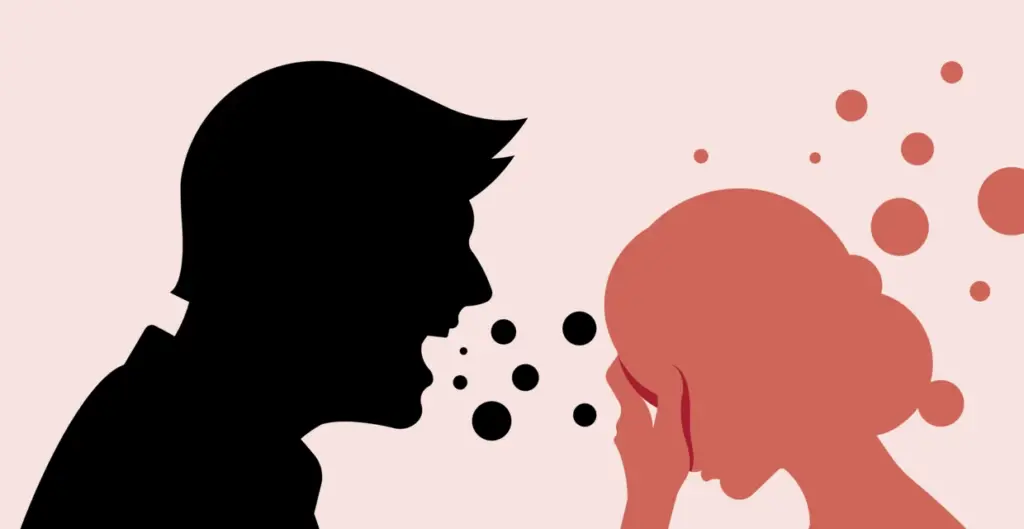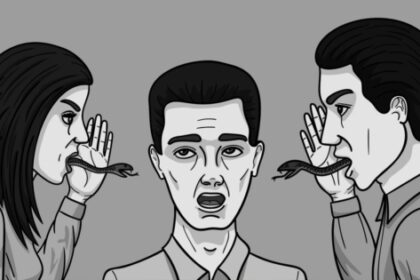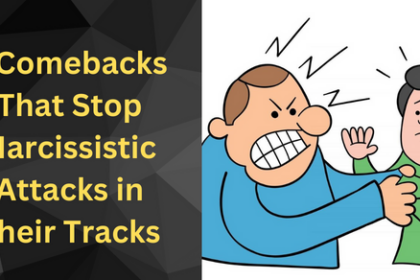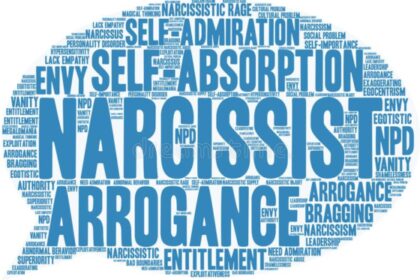Breaking up is never easy, and the aftermath of a failed relationship can be emotionally challenging. Some ex-partners, however, display peculiar behavior by attempting to remain friends despite the hurtful past.
Recent research suggests that this shameless pursuit of friendship may be indicative of an emerging psychopathic tendency. While it may seem appealing to maintain a friendly connection with an ex, it is crucial to understand the potential risks involved.
In this article, we will explore the connection between ex-partners who insist on remaining friends and emerging psychopathic traits, shedding light on a concerning phenomenon.
Understanding A Psychopath
Psychopathy is a personality disorder characterized by a lack of empathy, manipulative behavior, and a disregard for moral and social norms. While not everyone who exhibits these traits is a psychopath, they can be warning signs of a potential psychopathic tendency.
Psychopathy is a complex condition, and its emergence can be gradual rather than instant. Researchers have discovered that maintaining contact with an ex-partner who displays psychopathic traits can expose individuals to emotional manipulation, further damaging their emotional well-being and hindering the healing process.
The Ex-Partner’s Motivations
When an ex-partner insists on maintaining a friendship, their motivations can vary. Some genuinely seek a platonic connection, while others may have ulterior motives.
However, emerging research suggests that individuals displaying psychopathic traits often use friendship as a means to manipulate and control their former partners. By keeping an ex within reach, they can continue to exert power and influence over their emotions, exploiting vulnerabilities for their own gain.
They may also exploit the empathy and guilt felt by their ex-partners, leveraging these emotions to maintain a sense of control and superiority.
Red Flags and Warning Signs
Identifying potential psychopathic traits in an ex-partner can help individuals protect themselves from further harm. Several warning signs can indicate the emergence of psychopathy.
One key indicator is a lack of remorse or accountability for their actions during the relationship. Psychopathic individuals often exhibit superficial charm, manipulating others into believing they have changed or deserve another chance. They may also engage in gaslighting, distorting reality and making their former partners doubt their own perceptions and memories.
Another red flag is the ex-partner’s insistence on maintaining contact despite the negative impact it has on the affected individual’s well-being. Psychopathic individuals thrive on power and control, and by remaining friends, they can exert influence and manipulate emotions to their advantage.
Additionally, they may engage in predatory behavior, seeking personal gain or satisfaction from the emotional distress of their ex-partner.
Protecting Yourself
When faced with an ex-partner displaying emerging psychopathic traits, it is crucial to prioritize your well-being and protect yourself from further harm.
First and foremost, set clear boundaries and communicate your need for space and distance. Avoid engaging in conversations or situations that can be manipulated to their advantage.
Surround yourself with a supportive network of friends and family who can provide emotional support and perspective.
Seeking professional help from a therapist or counselor can also be beneficial. They can help you navigate the emotional challenges of the breakup and provide guidance on setting healthy boundaries.
Furthermore, educate yourself about psychopathy and manipulative tactics to recognize and respond effectively to any attempts at emotional manipulation.

Safely End A Toxic Friendship With An Ex Partner
Ending a toxic friendship with an ex-partner can be challenging, but it is essential for your well-being. Here are some steps to help you safely navigate this process:
- Reflect on Your Decision: Take time to reflect on why you want to end the friendship. Consider the negative impact it has on your emotional well-being and whether it aligns with your long-term goals for personal growth and happiness. Remind yourself of the reasons the friendship became toxic in the first place.
- Establish Boundaries: Before initiating the conversation, establish clear boundaries for yourself. Decide what level of contact, if any, you are comfortable with moving forward. Be firm in your decision and prioritize your own emotional well-being.
- Choose the Right Time and Place: Find an appropriate setting where you can have a calm and private conversation. Avoid public spaces or situations where tensions might escalate. Choose a time when you both have the opportunity to engage in an open and honest dialogue without distractions or time constraints.
- Be Honest and Assertive: Express your feelings honestly and assertively. Clearly communicate your decision to end the friendship and explain why it is necessary for your well-being. Use “I” statements to express how the toxic dynamics have affected you and avoid blaming or criticizing your ex-partner. Remember to remain calm and composed throughout the conversation, even if they react negatively.
- Keep Communication Minimal: After ending the friendship, it is important to limit or cut off communication, at least temporarily. This will give both of you the necessary space to heal and move on. Consider blocking or unfollowing them on social media platforms to avoid unnecessary triggers.
- Seek Support: Ending a toxic friendship can be emotionally challenging. Reach out to trusted friends, family members, or a therapist for support. They can provide a listening ear, guidance, and help you process your emotions during this transition.
- Focus on Self-Care: Invest time and energy into self-care activities that promote your well-being. Engage in hobbies, exercise, practice mindfulness, and spend time with positive influences in your life. Prioritize your healing and personal growth.
- Avoid Relapses: There may be moments of vulnerability or nostalgia when you feel tempted to reconnect with your ex-partner. Remind yourself of the reasons why you ended the friendship and the negative impact it had on you. Stay committed to your decision and refer back to your established boundaries.
Remember, ending a toxic friendship is a courageous step towards prioritizing your well-being. It may take time to heal, but with self-care, support, and the determination to move forward, you can create a healthier and happier life for yourself.
Conclusion
While it may be tempting to maintain a friendship with an ex-partner, especially if they insist on it, it is essential to recognize the potential risks involved. Research suggests that individuals who relentlessly pursue a friendly connection after a breakup may be exhibiting emerging psychopathic traits.
By understanding the motivations behind their behavior and identifying warning signs, individuals can protect themselves from emotional manipulation and prioritize their own well-being. Remember, it’s okay to prioritize your healing and distance yourself from a toxic ex-partner, even if they insist on remaining friends.






